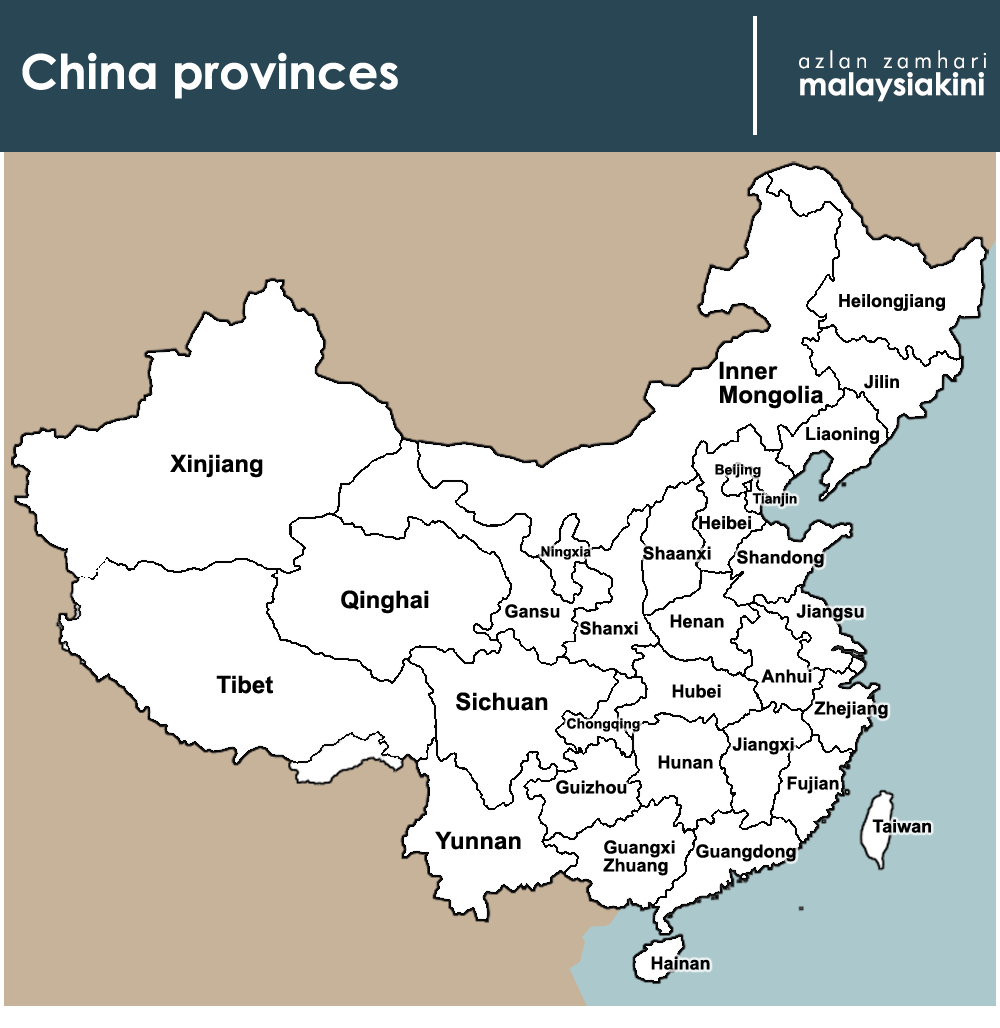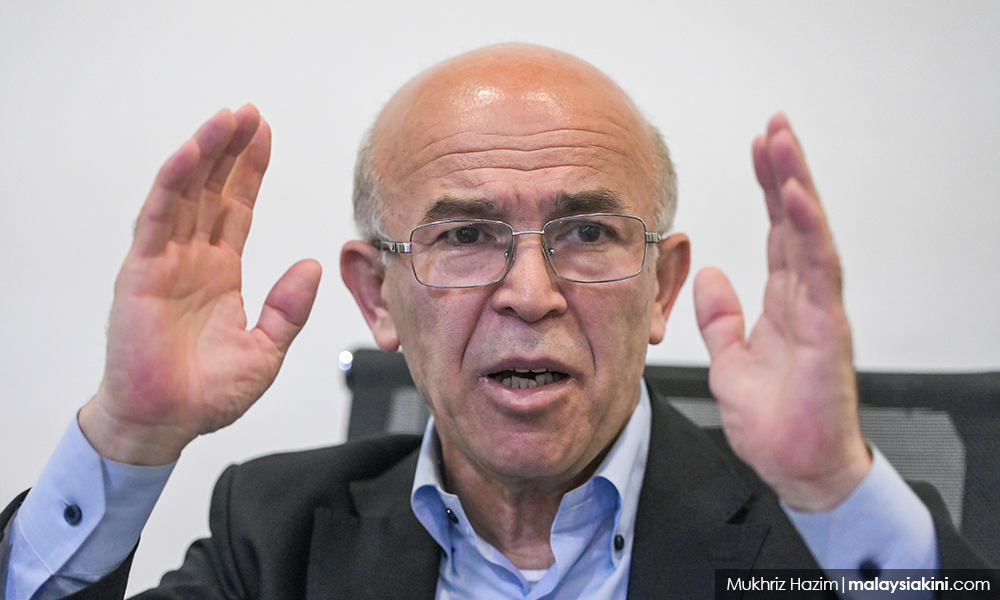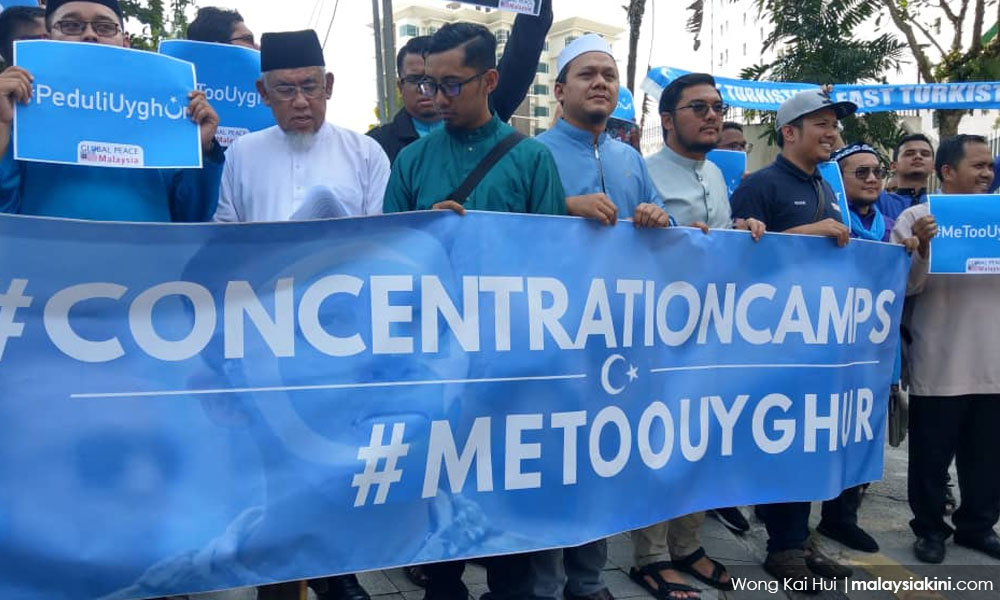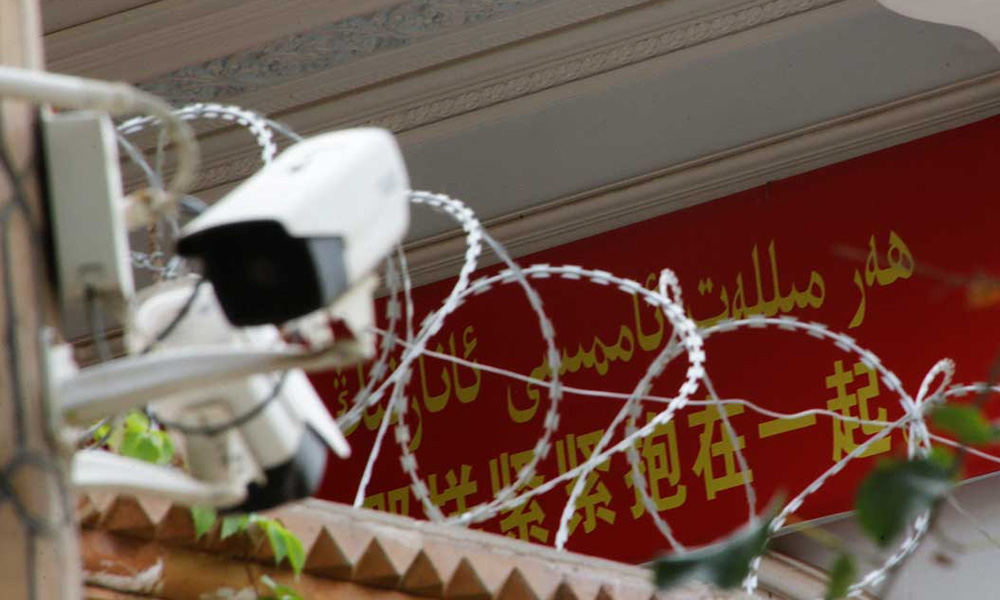The Uyghur people are one of many ethnic communities around the world who live in a state where their right to self-determination is unquestionably being suppressed.
Even more than that, members of the Muslim minority that resides primarily in China's Xinjiang province have told the world that their people are herded into concentration camps, and an actively genocidal policy is being carried out.
These are allegations that China has long denied, and its government has said that it is carrying out counter-terrorism and de-radicalisation efforts in the province.
The Uyghur claims have both documentation and political support, not least in the US which passed the Uyghur Human Rights Policy Act of 2020. The act states that it is intended to condemn gross human rights violations of ethnic Turkic Muslims in Xinjiang and calls for an end to arbitrary detention, torture, and harassment of these communities inside and outside China.
Omer Kanat is chairperson of the Executive Committee of the World Uyghur Congress, the largest umbrella organisation of Uyghurs, and he doesn't mince his words about what has been happening there.
On a recent visit to Malaysia, he talked about why there is still much to be done to raise awareness for the Uyghur's cause.

"The main purpose of the visit is to brief policymakers and civil society organisations in Malaysia and Indonesia about the current situation and our international response to that.
"It is also to support the Uyghur leader in civil society organisations efforts, to raise awareness about the situation of the Uyghur people to the public and also their effort to ask their governments to take some actions to prevent this ongoing genocide.
"We met some politicians who promised us to bring this issue to the Parliament, and they told us that they would do their best. And they also promised to ask the government what it has been doing in the face of genocide against Uyghur people," he said.
In 2018, Human Rights Watch reported evidence of the Chinese government's mass arbitrary detention, torture, and mistreatment of Turkic Muslims in Xinjiang and systemic and increasingly pervasive controls on daily life there.
They alleged abuses that violate fundamental rights to freedom of expression, religion, and privacy and protection from torture and unfair trials.
Critics allege that as many as one million of Xinjiang's 12.8 million Uyghur population are in 're-education' camps. Information is scarce and usually comes through Uyghur minorities in Turkey, Kazakhstan, Uzbekistan and Kyrgyzstan.
One of the issues that pose a challenge for Omer is that China's economic strength makes it a key partner to most Asian countries who might not want to ruffle the weather on this matter.
"Until now, maybe they have done some things very privately. Publicly, we haven't heard anything they have done except that the Malaysian government publicly announced that they would not deport any Uyghur back to China.
Won't deport any Uyghur
In 2018 the Pakatan Harapan government reversed the policy of the previous BN regime and announced that 11 ethnic Uyghur Muslims who fled to Malaysia after a Thai jailbreak in 2017 would be sent to Turkey in disregard of China's request to hand them to Beijing.
"We are very grateful to the Malaysian government that they didn't return or deport these Uyghurs back to China but allowed them to move to Turkey.
"Because it is a big problem for the Uyghurs in different Muslim countries to face deportation, for example, Morocco and Saudi Arabia have been deported.
"European international organisations and human rights organisations have been doing a lot of things to prevent their deportation, asking the Western governments to put pressure on Saudi Arabia and Morocco not to deport these Uyghurs. Because if they are deported to China, it means sending them to their death," said Omer.
The propaganda war
Omer and his organisation find themselves in constant propaganda war despite China being a one-party Communist state that exerts tight media control and allegations of human rights abuses in Tibet, Hong Kong and other regions of the country.
China has quite a strong presence now in certain diaspora, including Malaysia, which believes the counter-narrative to what the Uyghurs are claiming.

Omer feels that while ordinary people might be duped by propaganda exercises, governments will be more aware.
"First of all, it is too obvious what the Chinese government is doing, so that while there are some ordinary people who don't know what is happening, I think the governments know what's happening.
"There have been a lot of international coverage, reports of the international human rights organisations, reports of independent researchers and journalists. Therefore we don't think the government officials or politicians don't know what's happening," he said.
"We have tried our best to inform the ordinary people what is happening to mobilise the civil society organisations, in Malaysia, in Indonesia, so they can inform the public and raise awareness, do advocacy work on behalf of Uyghur people.
"So to do that, we need the support, especially support of the civil society organisations. Because in most Muslim countries, there is an instruction from the government to the mainstream press not to cover Uyghur issue, keep the public unaware of the situation," he claimed.
According to Omer, if the public knows what's happening, then there will be pressure from people on the government to do something.
"So, therefore, to do nothing, some governments are trying very hard to keep the people unaware of the situation. And in this regard, the work of civil society organisations and social media is very important.

He said that there has been a lot of international coverage about what's happening in the big news outlets, big televisions, and newspapers but that we don't see anything in the mainstream media of the Muslim world.
Omar pointed out that the difference between awareness of the Uyghur versus the Rohingya situation lay in China's power.
"Actually, the situation is the same. Rohingya Muslims also face genocide, but Myanmar or Burma is very different from China because China is a big country and has a lot of influence and economic power.
"So China has been using its economic power and diplomatic relations with other countries to pressure those governments not to raise the Uyghur issue on any international platform," he said.
Stage-managed visits
Omer said that China has even developed a habit of getting journalists and diplomatic officials to tour Xinjiang and report favourably on conditions there.
"China not only invites journalists from Muslim countries, but they invite official delegations and show them the places they want to show. They staged everything, they fabricated everything, and then they let them talk to the people the government wanted them to talk to.
"Delegations from Muslim countries, when they come back, they said everything is ok, but when you check, there is no freedom to move even to a night market or talk to members of the public. For everything, you must seek permission," he said.
Malaysiakini has contacted the Chinese Embassy in Malaysia for a response to Omer's claim but has yet to receive a response.
US support could be an anti-China tactic
While Omer is grateful that the Uyghur people are getting political support from the US, he is well aware of the narrative that they might be used by the US to undermine China.
"Maybe the US also benefits diplomatically because Chinese human rights violations can cause damage to the Chinese image internationally.
"Indeed, if the US is the champion of democracy and human rights, they should have done something years ago because it is very obvious, they had all this evidence and proof that the Chinese government has been committing genocide against the Uyghur people.
"The Uyghur Human Rights Policy was passed by the US Congress in 2020. but this genocide started in 2017. It took almost four years until the US government started to take some action," he added.
Omar said it was interesting to note that it would not have happened without a lot of advocacy work.
"There was a lot of pressure on the US government, from human rights organisations, from religious groups, from the democracy movements, to do something.
"For example, the Jewish groups in the US compared what's happening in the Uyghur region to what happened to Jews during World War II.
"The destruction of the mosques was compared to the destruction of synagogues in 1939. Forced labour in cotton fields reminded the people of the black slaves in cotton fields in the US. The concentration camps recalled Nazi Germany," he said.
Omar said the US government didn't suddenly decide to become a friend of the Uyghur.
"I faced the same question, especially when I go to the Muslim world. The politicians are asking us why the US government is so enthusiastic about (helping) the Uyghurs and why are they taking so many actions against China. I told them because you didn't do anything. If you do something, maybe they will not do it.
"It's actually your duty because we are Muslim, we are brothers and sisters, but you haven't done it," he said.

Working with other persecuted groups
Within China itself, many groups allege persecution. Omer's group maintains friendly relations with all of them.
"We have been working very closely with Hong Kongers, with Tibetan, with Mongols, with Chinese residents, through democracy organisations, civil society organisations in Taiwan.
"So we are working together, and we have staged joint meetings to inform the public, and also demonstrations in the international sphere against the Chinese government's policies," he said.
While very vocal about the persecution of Muslim groups like the Rohingya, Palestinians and the Uyghurs, Omer is aware of but less directly vocal when it comes to the oppression by a Muslim majority country against its own minorities.
For example, Indonesia, as a Muslim majority country, had a terrible human rights record in East Timor and West Papua.
"This is a really sensitive question. We have an organisation called Unrepresented Peoples and Nations Organisation. Some from West Papua people are members of the organisation. We are also members. So we are discussing our common problem together in that organisation.
"But the Uyghur issue is not well known by the people, so we concentrate our research there, raising awareness about Uighur people. We have very few people, and we have limited resources, limited financial resources, so we concentrate on our own issues," he said. - Mkini




No comments:
Post a Comment
Note: Only a member of this blog may post a comment.